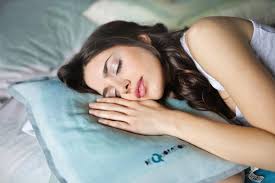Drinking coffee can indeed prevent or delay sleep due to its caffeine content. Caffeine, a central nervous system stimulant, blocks the action of adenosine, a brain chemical involved in sleep regulation. This results in increased alertness and wakefulness, making it harder to fall asleep.
The effect of caffeine on sleep can vary depending on individual sensitivity, the amount consumed, and the timing of consumption relative to bedtime. Generally, consuming coffee, especially in the late afternoon or evening, can disrupt sleep patterns and may lead to difficulties in falling asleep or staying asleep.
Does drinking coffee prevent sleep ?
In sleep medicine, it’s known that caffeine, a renowned stimulant, can profoundly modify sleep patterns and quality with varying levels of caffeine having different impacts. The effects of caffeine on sleep vary depending on the levels of caffeine intake and an individual’s sensitivity to caffeine.
Effects of Caffeine Consumption on Sleep Quality
- Adenosine Receptor Blockage: Caffeine blocks adenosine receptors, reducing feelings of tiredness and delaying the onset of sleep.
- Sleep Architecture Changes: It can lead to lighter, more fragmented sleep, and reduced time in deep sleep stages.
- Sleep Duration: Caffeine intake, especially in the evening, can decrease the overall sleep duration.
Consuming Too Much Caffeine and Its Impact on Sleep
- Increased Time to Fall Asleep: Higher caffeine doses can increase the time it takes to fall asleep.
- Nighttime Awakenings: It may cause more frequent awakenings during the night.
- Non-Restorative Sleep: High caffeine consumption can lead to waking up feeling unrefreshed.
The Relationship Between Caffeine Intake and Quality Sleep
- Cycle of Poor Sleep: High and regular caffeine consumption can lead to a cycle of poor sleep and increased daytime sleepiness, creating a dependency on caffeine to stay alert.
- Tolerance Development: Regular consumers may experience diminished alerting effects, yet still suffer from sleep disturbances.
Understanding the Dose of Caffeine That Affects Sleep
- Individual Variability: Sensitivity to caffeine’s effects on sleep varies; even low doses can affect sensitive individuals.
Caffeine Content and Its Influence on Total Sleep Time
| Beverage/Food Item | Approximate Caffeine Content | Potential Impact on Sleep |
|---|---|---|
| Coffee (8 oz) | 80-100 mg | High (especially if consumed later in the day) |
| Tea (8 oz) | 30-50 mg | Moderate (varies with type and brew time) |
| Energy Drink (8 oz) | 80-150 mg | High (due to concentrated caffeine) |
| Dark Chocolate (1 oz) | 12-25 mg | Low to Moderate (depends on quantity consumed) |
| Cola (12 oz) | 35-45 mg | Moderate (especially if consumed in large quantities) |
This table illustrates the varying caffeine content in common foods and beverages and their potential impact on total sleep time. The actual effect can vary based on individual sensitivity and the quantity consumed.
How to Improve Sleep Quality After Consuming Caffeine
While caffeine consumption can disrupt sleep, there are several strategies to mitigate its effects and improve sleep quality. Here’s a detailed guide:
Managing Caffeine Intake for Better Sleep
Monitor Caffeine Amounts: Keep track of how much caffeine you consume daily.
Limit Late-Day Consumption: Avoid caffeine at least 6 hours before bedtime.
Choose Lower Caffeine Options: Opt for beverages with less caffeine in the afternoon and evening.
Strategies to Minimize the Impact of Caffeine on Sleep
Stay Hydrated: Drink plenty of water to help metabolize caffeine faster.
Engage in Relaxing Activities: Practice relaxation techniques like meditation or reading before bed.
Physical Activity: Engage in regular exercise, but avoid strenuous activities close to bedtime.
Effective Ways to Counteract the Effects of Caffeine Before Bed
Warm Bath or Shower: This can help your body begin the cooldown process essential for sleep.
Herbal Tea: Non-caffeinated herbal teas can promote relaxation.
Mindfulness or Meditation: These practices can calm the mind, counteracting caffeine’s stimulating effects.
Implementing Healthy Sleep Habits to Offset Caffeine’s Influence
Consistent Sleep Schedule:
Maintain a regular sleep routine by going to bed and rising at consistent times daily.
Bedroom Environment: Ensure your bedroom is dark, quiet, and cool.
Avoid Screens Before Bed: Reduce exposure to blue light from screens, which can further disrupt sleep.
Optimizing Sleep Hygiene
| Sleep Hygiene Practice | Description | How It Helps Counteract Caffeine |
|---|---|---|
| Dimming Lights in the Evening | Reduce exposure to bright lights at night | Prepares the body for sleep by enhancing natural melatonin production |
| Light Evening Meals | Avoid heavy, rich foods before bed | Reduces digestive discomfort, making it easier to sleep despite caffeine |
| Relaxation Techniques | Practice deep breathing or yoga | Helps lower the body’s stress response enhanced by caffeine |
| Limiting Naps | Avoid long or late-day naps | Ensures better sleep readiness at night |
| Creating a Pre-sleep Routine | Engage in calming activities | Signals the body it’s time to wind down for sleep |
Understanding the Relationship Between Caffeine and Sleep Deprivation
Caffeine is a common factor in sleep deprivation, affecting both the ability to fall asleep and the quality of sleep. Here’s an overview of how caffeine can lead to sleep deprivation and ways to manage it:
The Role of Caffeine in Sleep Deprivation
Adenosine Blockage: Caffeine blocks adenosine, a neurotransmitter that promotes sleep, leading to delayed sleep onset.
Altered Sleep Architecture: It can reduce the amount of deep sleep and REM (rapid eye movement) sleep, which are crucial for restorative sleep.
Increased Nighttime Alertness: Caffeine can cause heightened alertness at night, making it difficult to fall asleep.
How Much Caffeine Leads to Sleep Deprivation?
Individual Differences: The amount varies among individuals, but generally, consuming caffeine late in the day is more likely to disrupt sleep.
Quantity and Timing: As little as 100-200 mg of caffeine (about 1-2 cups of coffee) in the afternoon or evening can affect sleep for sensitive individuals.

Effects of Caffeine Consumption on Sleep Duration
Delayed Sleep Onset: It may take longer to fall asleep after consuming caffeine.
Early Morning Awakenings: Caffeine can cause individuals to wake up earlier than intended and have difficulty going back to sleep.
Strategies for Avoiding Caffeine Before Bedtime
Set a Cutoff Time: Establish a specific time in the afternoon beyond which you won’t consume caffeine.
Choose Non-Caffeinated Beverages: Opt for herbal teas or water in the evening.
Be Aware of Hidden Caffeine Sources: Watch out for less obvious sources like chocolate, certain medications, or energy drinks..
How Cessation of Caffeine Use Can Impact Sleep Patterns
More Consistent Sleep Schedule: Without caffeine, your body can maintain a more natural sleep-wake cycle.
Enhanced Sleep Depth: You may experience an increase in deep sleep and REM sleep.
Reduced Nighttime Awakenings: With less caffeine, there’s a lower chance of waking up during the night.
Benefits of Quitting Caffeine for Restful Sleep
Better Mood and Cognitive Function: Improved sleep can lead to better mood and cognitive function during the day.
Overall Health Improvement: Reduced caffeine can also benefit cardiovascular health and stress levels.
Enhancing Sleep Habits
Establish a Relaxing Bedtime Routine: Activities like reading or taking a warm bath can promote relaxation.
Regular Exercise: Consistently participate in physical exercise, but refrain from doing so shortly before going to sleep..
Mindfulness and Relaxation Techniques: Practices like meditation or deep breathing exercises can help transition your body into a state conducive to sleep.
Q: What are some common sources of caffeine ?
A: Common sources of caffeine include coffee, tea, energy drinks, soda, and certain medications or supplements.
Q: Can caffeine consumption affect individuals differently in terms of sleep disturbances?
A: Yes, individuals can have varying degrees of sensitivity to caffeine, which means that some may experience more pronounced sleep disturbances compared to others.
Q: Can regular caffeine consumers experience withdrawal effects that affect their sleep patterns?
A: Yes, regular caffeine consumers may experience withdrawal effects, such as insomnia and disrupted sleep, if they abruptly stop consuming caffeine, especially if they have been using high doses of caffeine regularly.
Q: Can individuals who are feeling sleepy use caffeine to improve their alertness without affecting their nighttime sleep?
A: While caffeine can temporarily improve alertness in sleepy individuals, excessive or late consumption of caffeine can still disrupt nighttime sleep, so it’s essential to use caffeine judiciously and be mindful of its potential effects on sleep.
Q: Is it safe to drink caffeine in the evening ?
A: It can still disrupt the overall quality and duration of sleep, so it’s generally advisable to stop drinking caffeine several hours before bedtime to promote a good night’s rest.


Leave a Reply